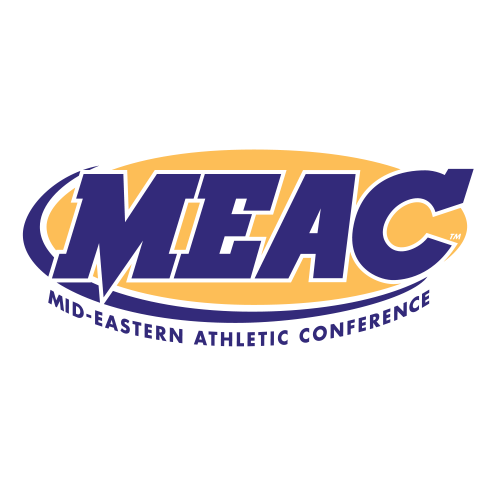By Branden Pierce, Staff Reporter

The Mid-Eastern Athletic Conference (MEAC) released a press release on Aug. 19, 2020, detailing possible plans of moving 2020 fall sports into the spring of 2021, in response to the COVID-19 outbreak.
In the release, they laid out a tentative plan for a few of the fall sports teams, specifically football and volleyball. The MEAC detailed a spring schedule that for the volleyball season would start the first weekend of January through February, with the MEAC Volleyball Championship being held the weekend of March 13-14. The football season will then span from Feb. 27, 2020, through April 24, 2020, with the championship game on May 1, 2020.
The conference also introduced a new format for football teams in the upcoming season. The release states, “football teams will play a slate of six regional conference games, with teams split into divisions”.
The two divisions were listed as the Northern Division and Southern Division, with Coppin State University, Delaware State University, Howard University, The University of Maryland, Eastern Shore, Morgan State University, and Norfolk State University rounding out the Northern Division. The Southern Division consists of Bethune-Cookman University, Florida A&M University, North Carolina State University, North Carolina Central University and South Carolina State University.
Nevertheless, the MEAC stated multiple times that these dates were “tentative” and were “subject to change”.
The MEAC clearly stated their primary goals during the pandemic, stating, “As has been the case since this pandemic started in March, the health and safety of our student-athletes, coaches, university staff and fans are paramount”.
Howard University Men’s Soccer senior captain Nicholas Turk says being a student-athlete during these is a “unique” experience marked with many challenges, all while preparing for their upcoming season since the players left Howard in March.
“We were crushed when we were told that we aren’t able to play this fall after months of preparation, but understand that there is far more at stake and that being flexible is the best thing we can do right now,” he said.
Turk continued, “This summer, we worked hard building a supportive foundation for our incoming class, and setting expectations for training as individuals, and the time we spent figuring out how we want to approach the next few months is really paying off now as we look towards a season in the spring. Practicing and working out is a huge part of being a student-athlete, but the part being tested the most right now is the mental side.”
Even though the season is still tentative, the possibility of a spring season for sports typically played during the fall is very interesting and could be more of a hassle than a solution.
The MEAC has not formally released a full plan for the spring and winter sports yet stating, “A regional schedule will be implemented for men’s and women’s basketball, men’s and women’s tennis, baseball and softball”.
So far, the lack of complete planning and a thorough schedule suggests most sports will be played during the same part of the year which may cause schedule conflicts if we see many teams overlapping game days.
Nonetheless, the chaos this could create is uncertain as we’ve never seen this before when it comes to collegiate sports.
Howard Women’s Soccer graduate Alayah Hightower says, “The postponement in our season is definitely a major switch out of the past four years at Howard. I really can’t imagine soccer being in the spring, especially since I play two sports [the other sport being women’s lacrosse].”
Another effect of the postponement of the fall sports season is the financial impact. The sports program in the MEAC will most likely see a loss in funds this year, although there will be fewer travel expenses.
There will be fewer games being played, resulting in fewer ticket sales, merchandise and concessions being sold.
The question of whether or not fans will be able to attend any of these games is currently uncertain, however, if no fans can attend that will be a huge blow to MEAC sports programs.
Though the impact for bigger sports such as football and basketball will probably be minimal, the impact for the smaller sports with an already smaller fan base might be much larger.

